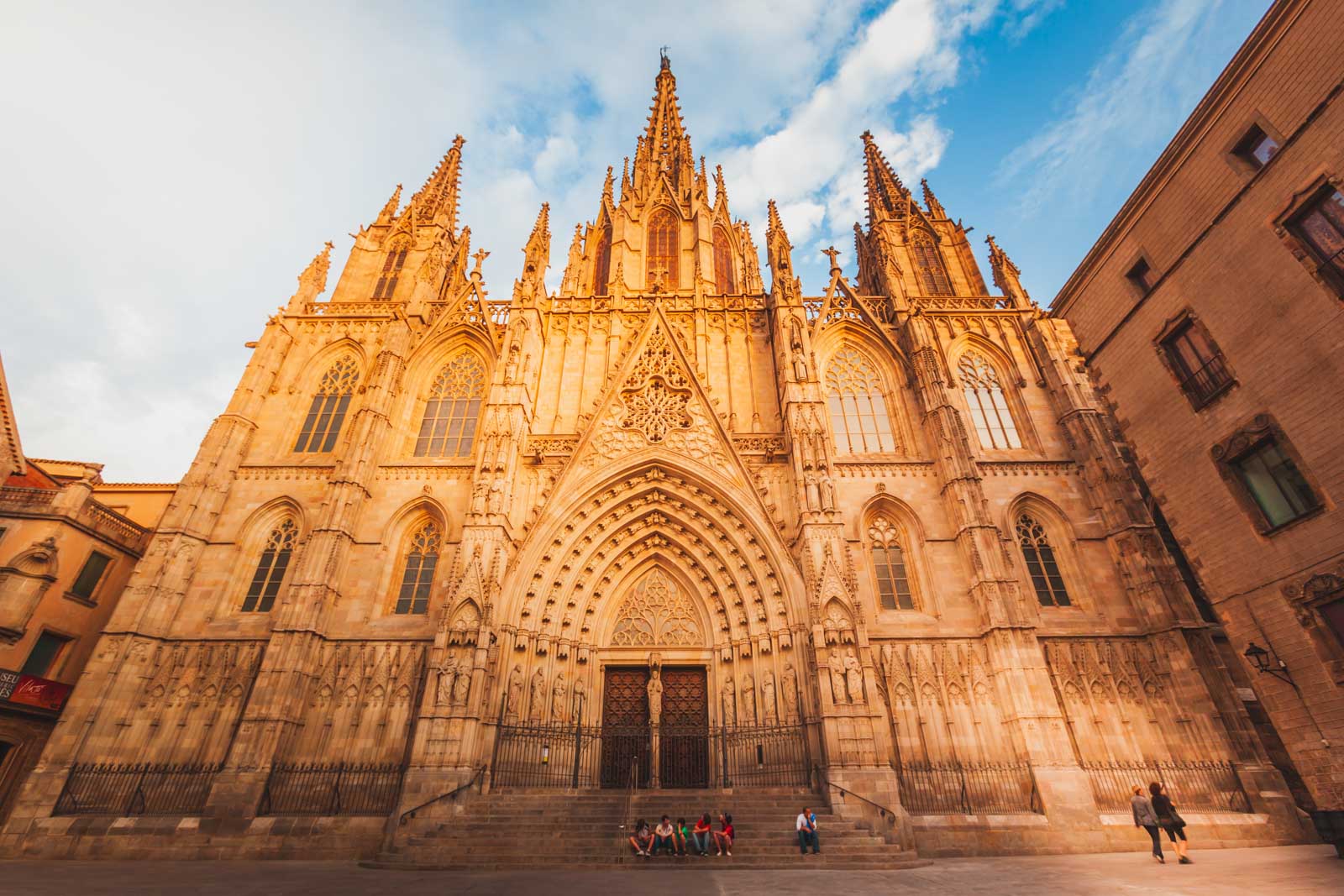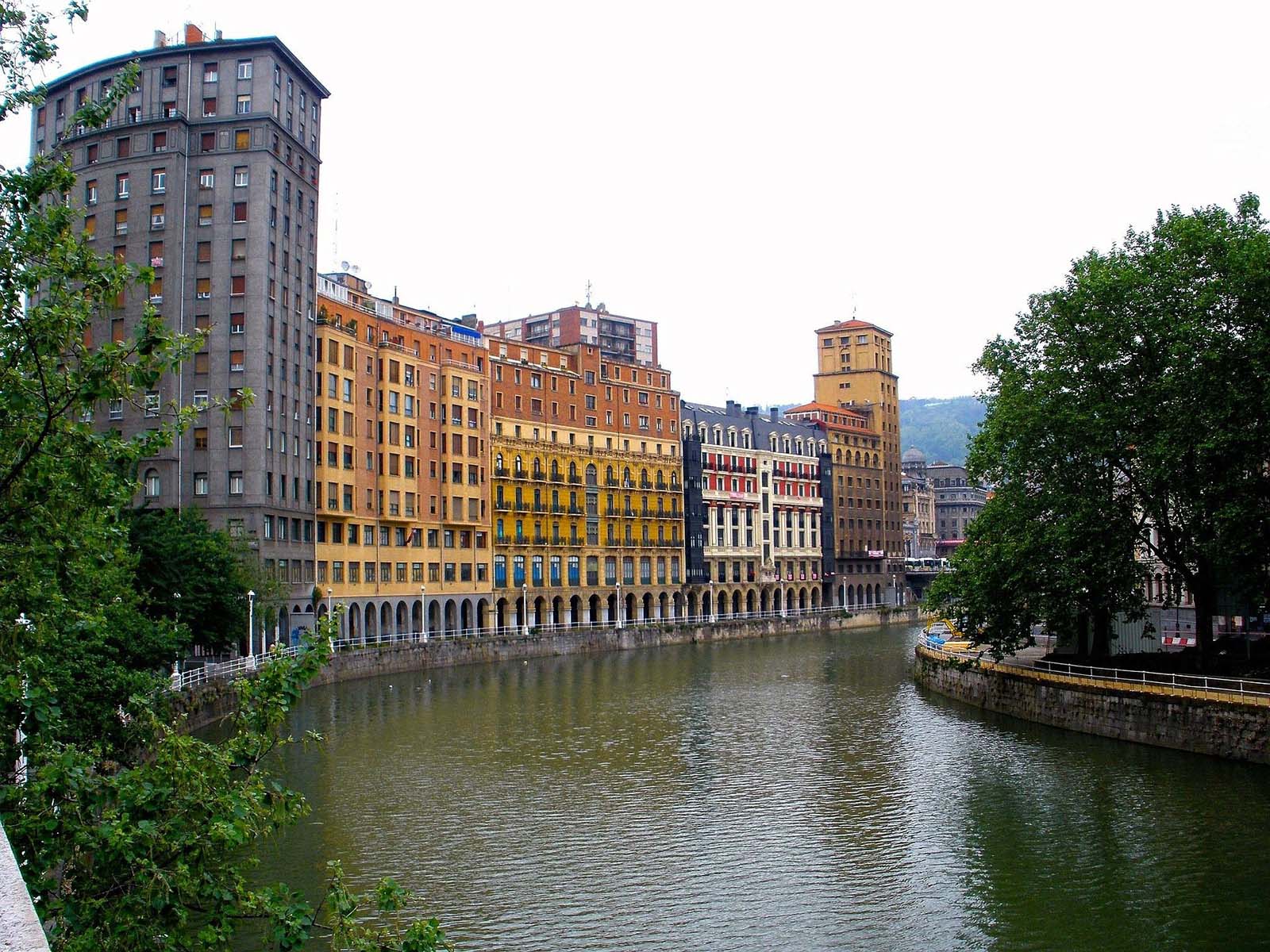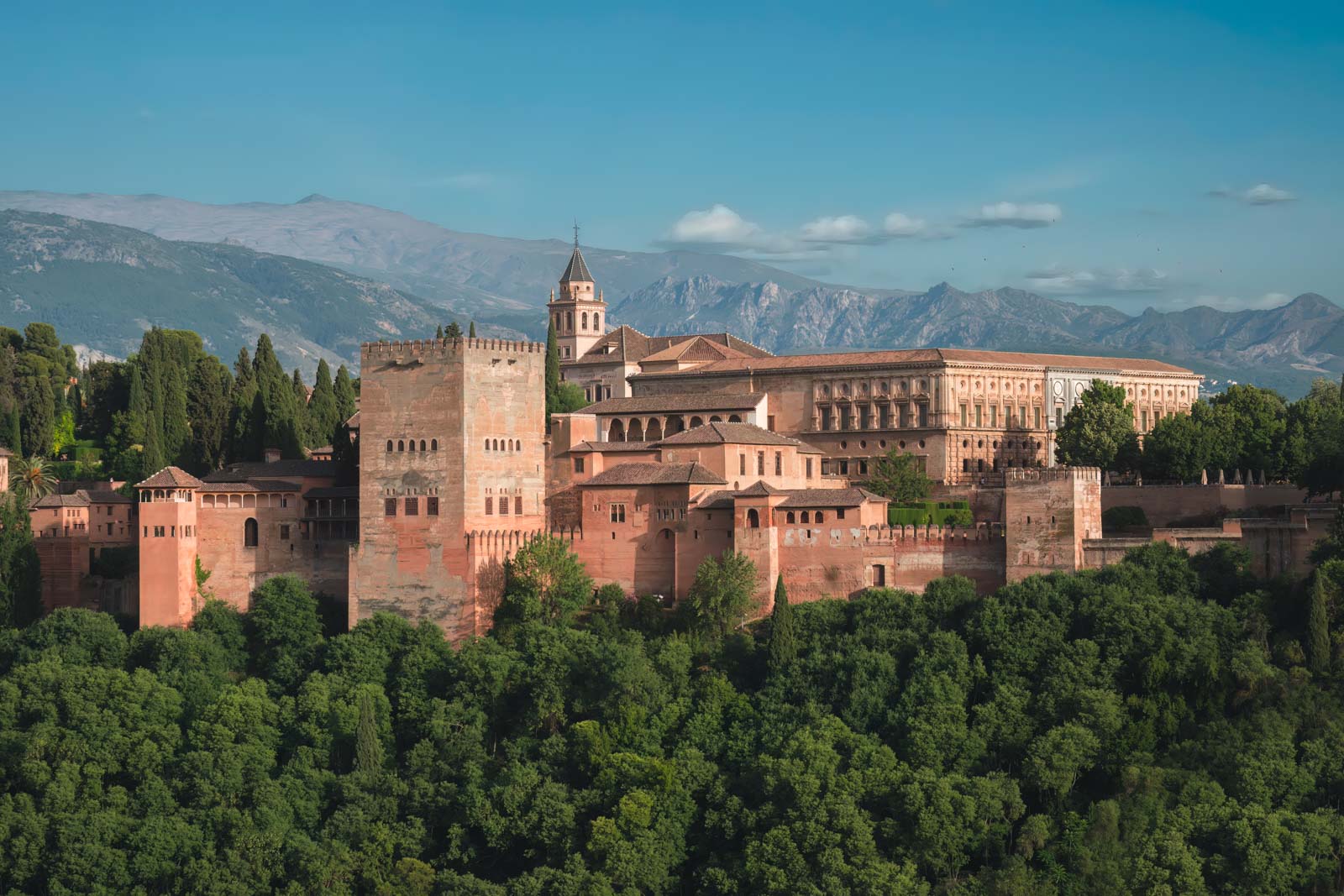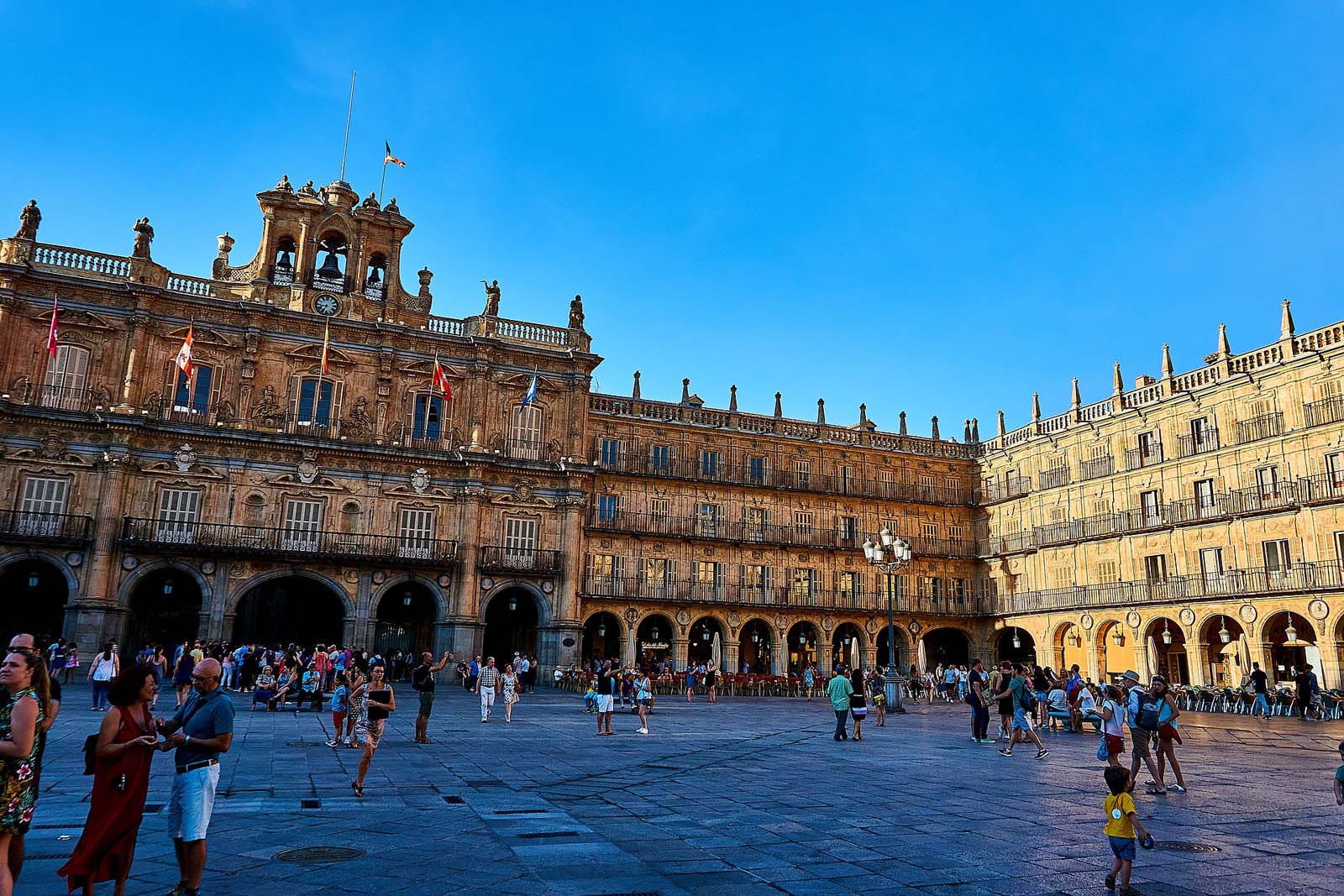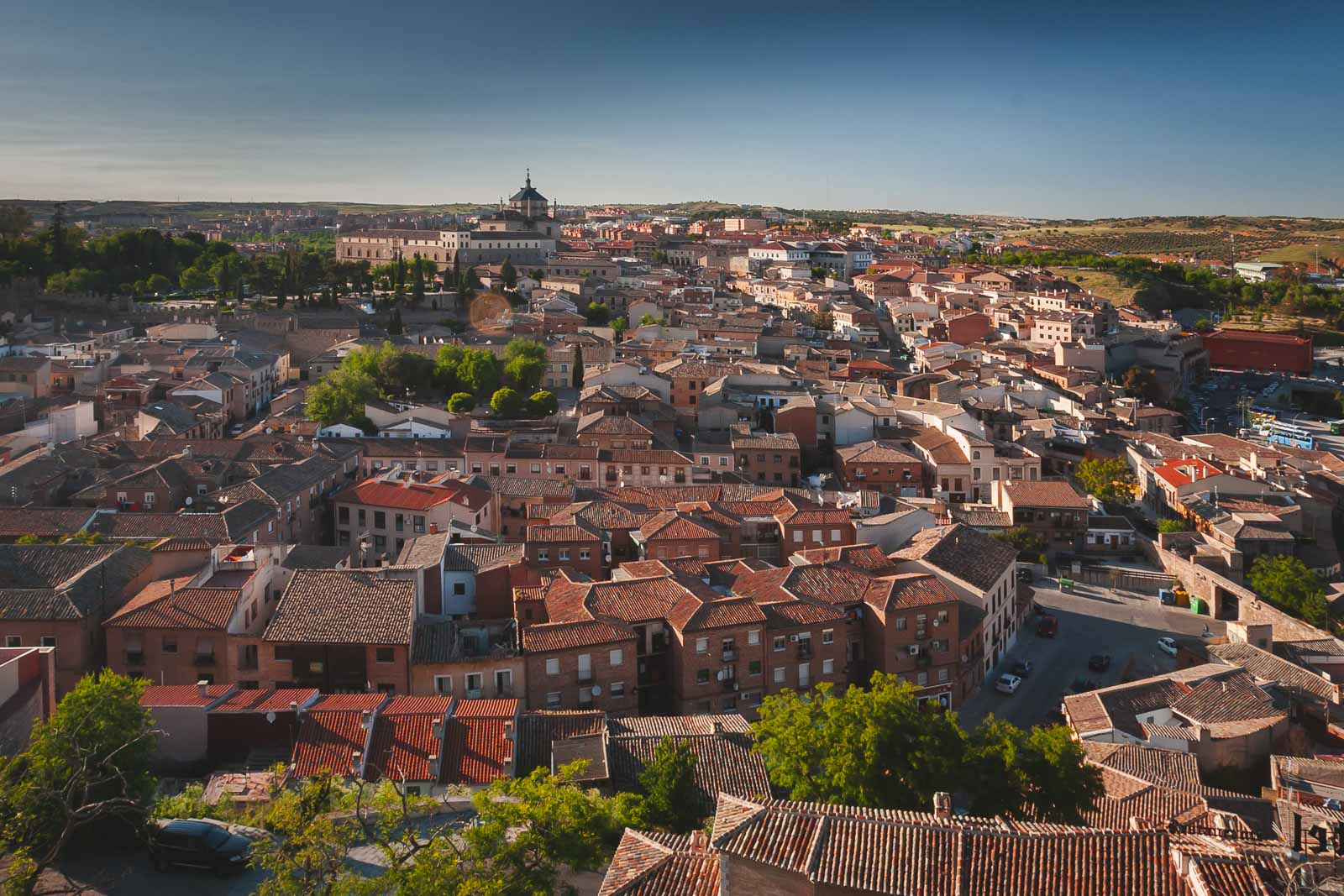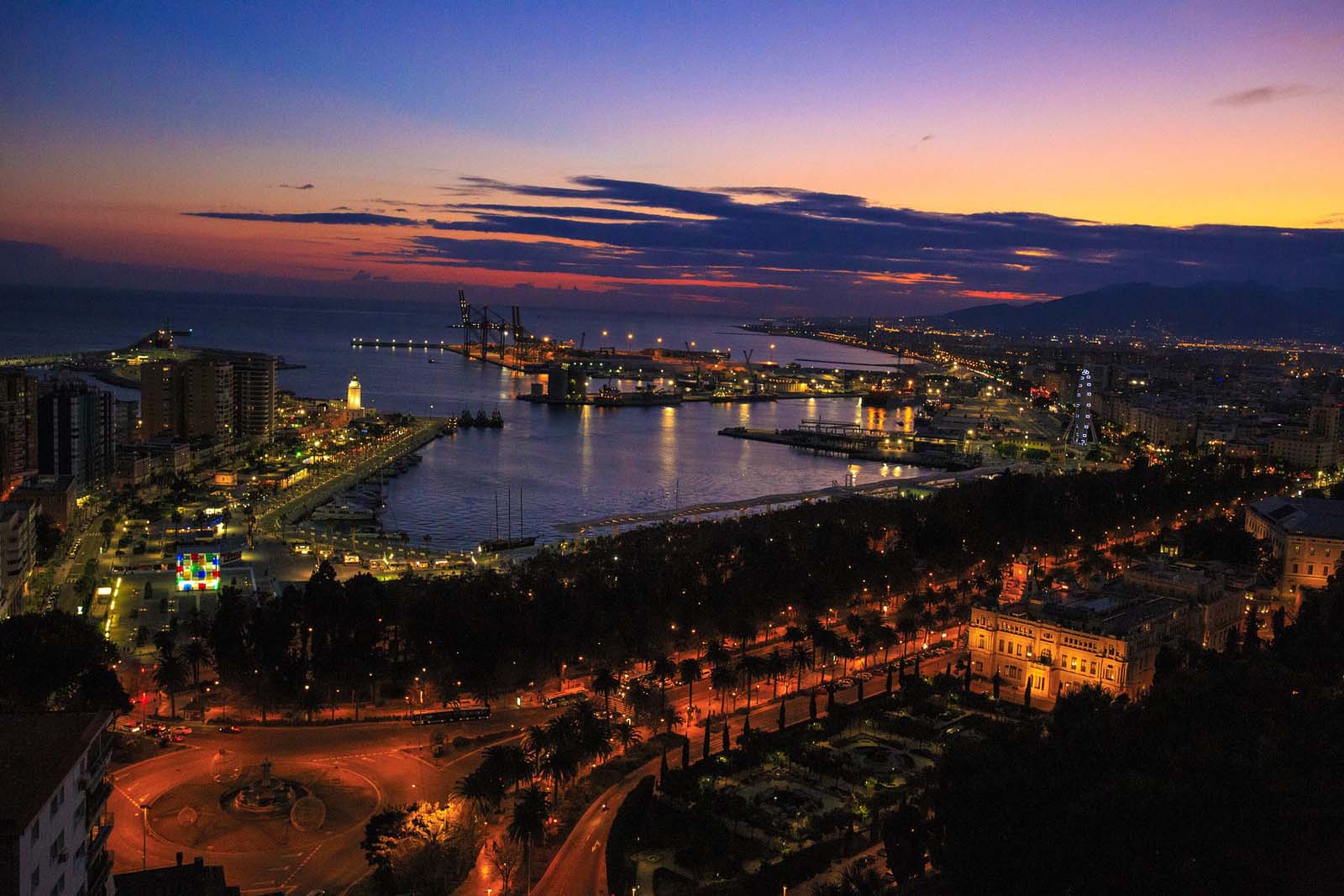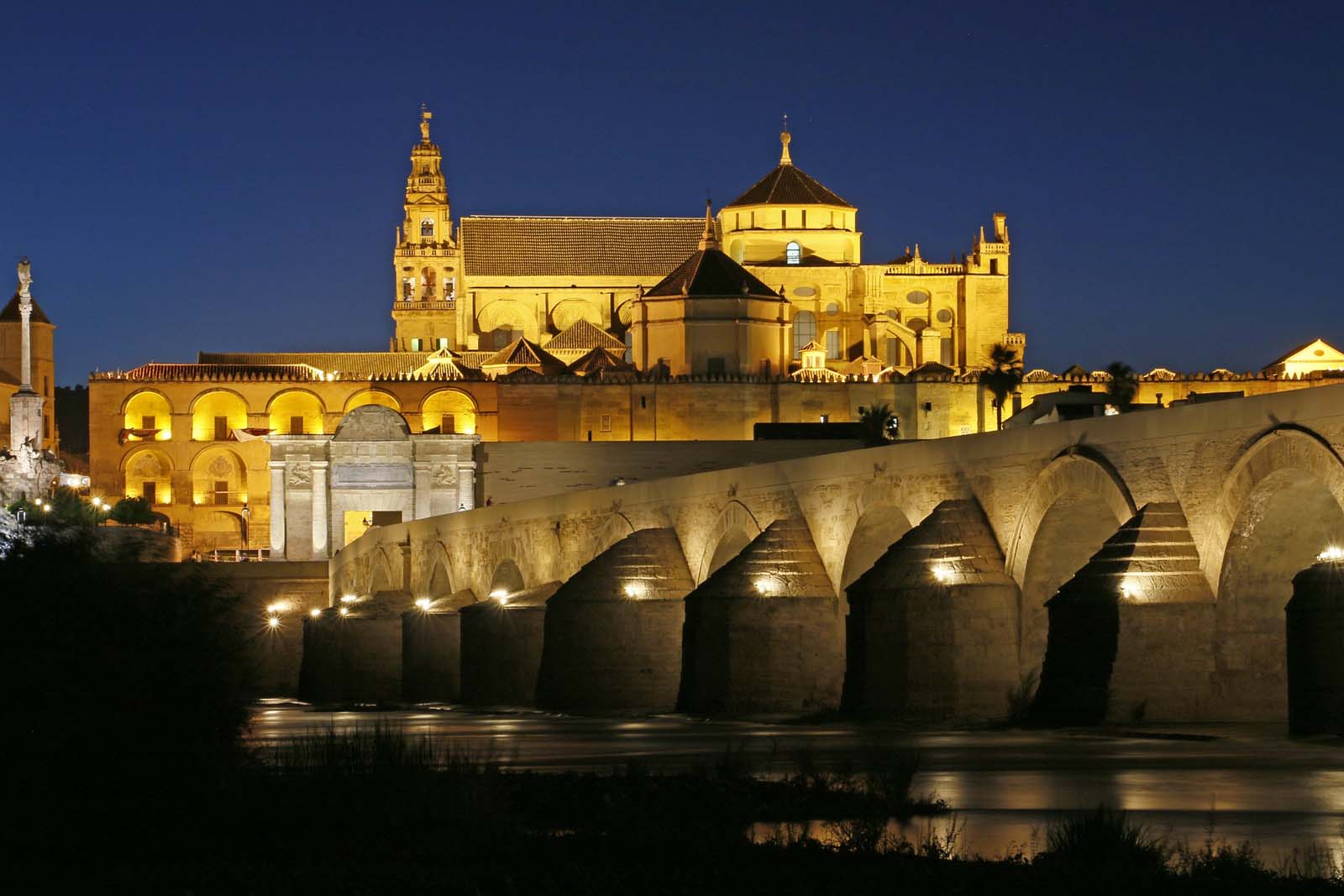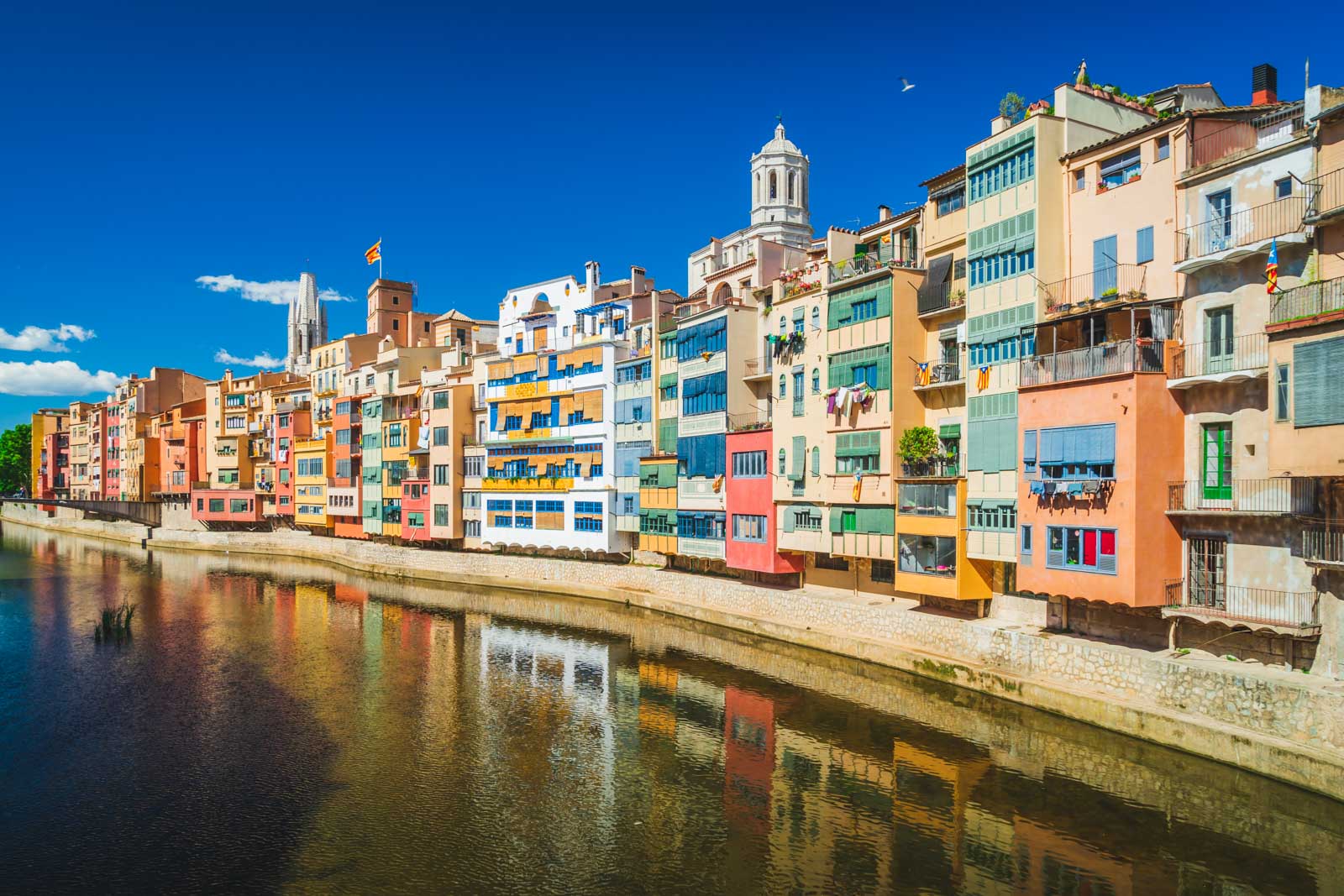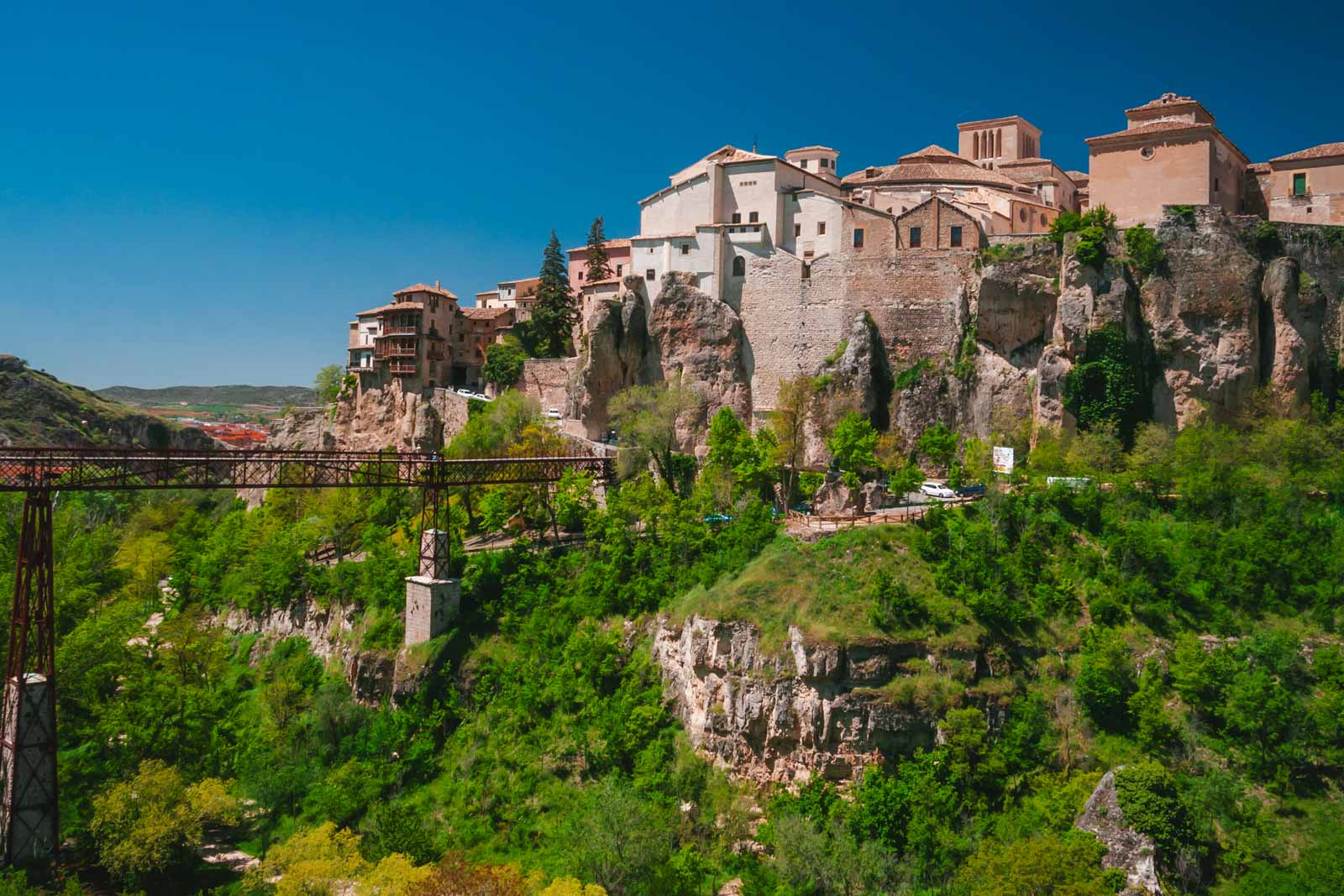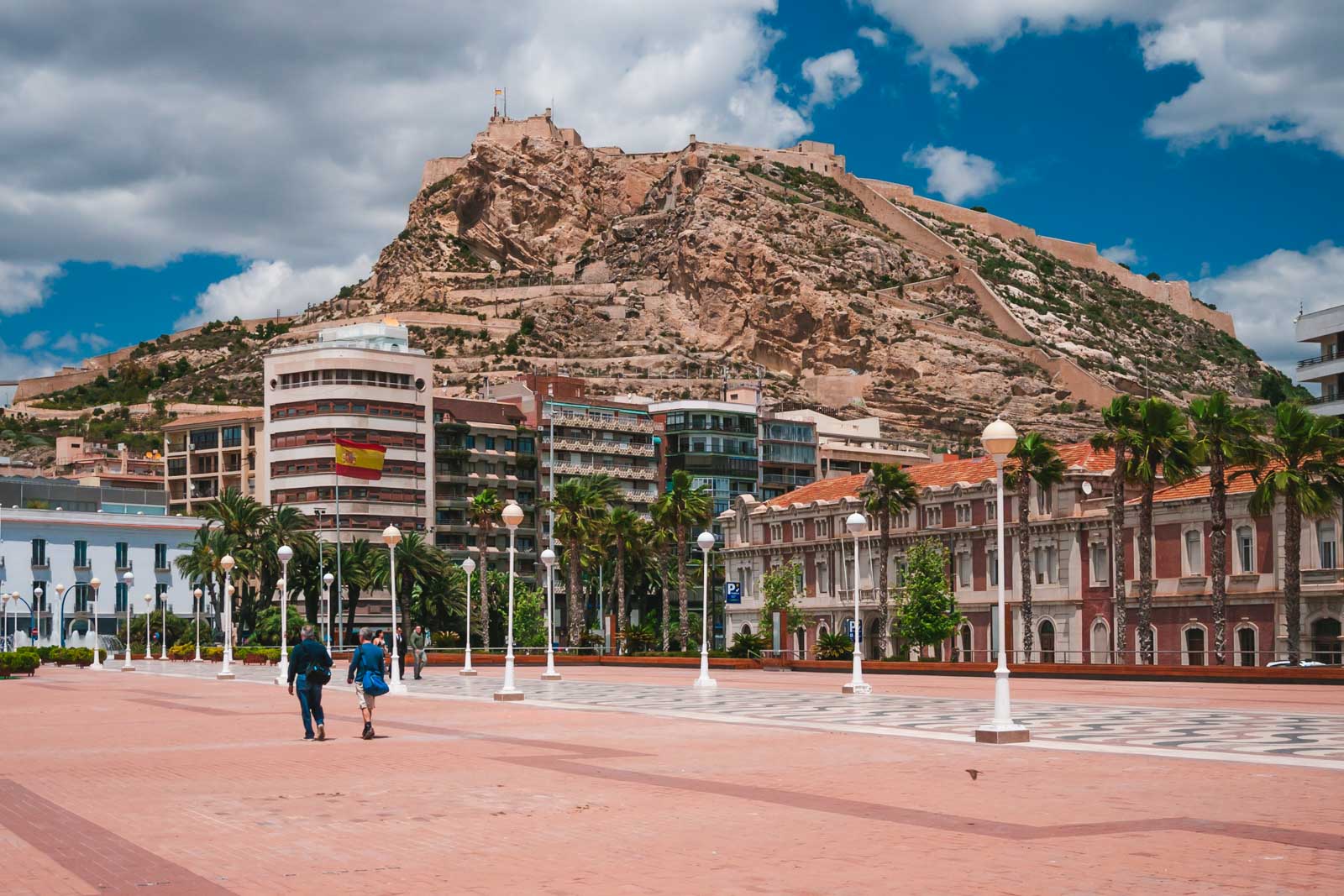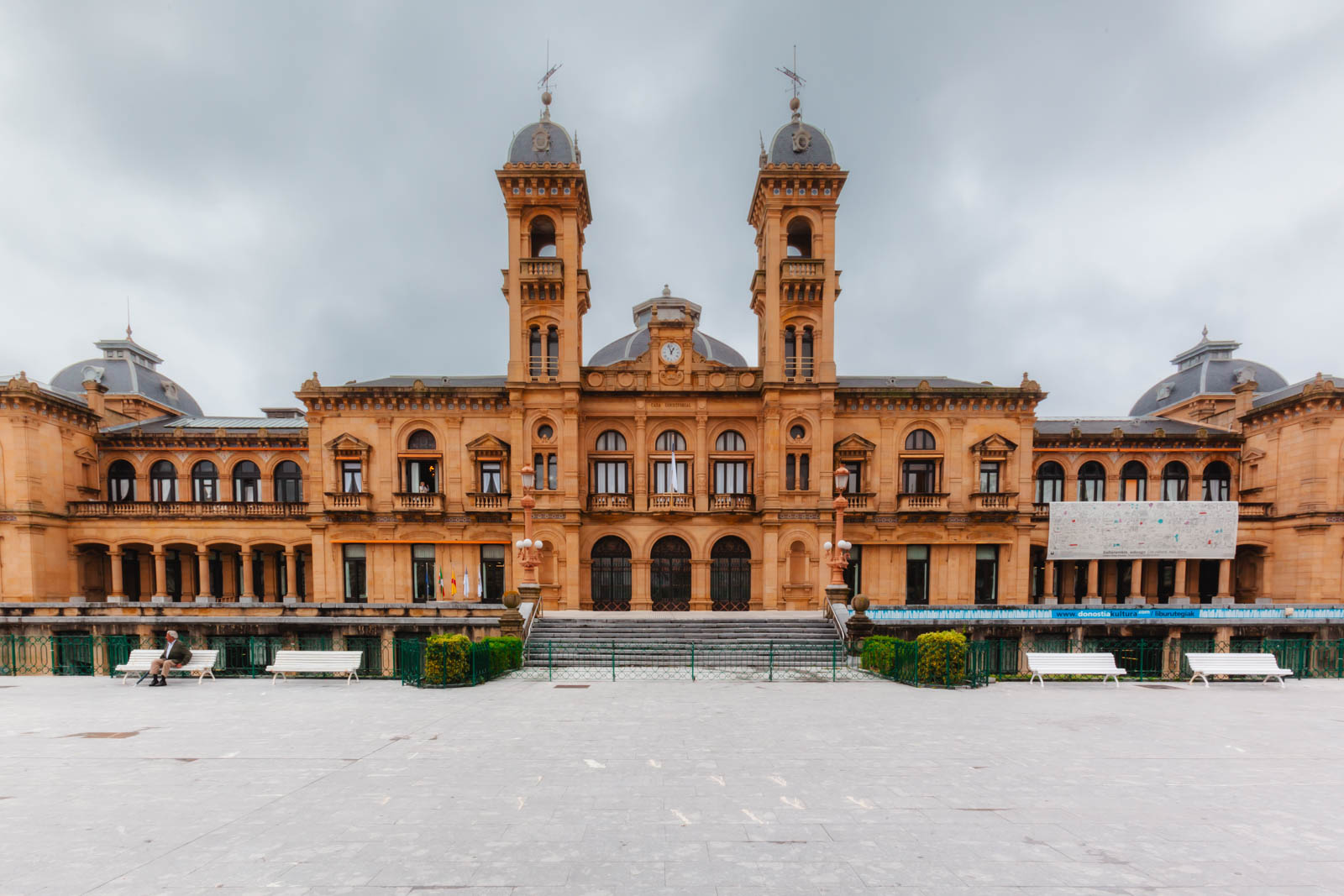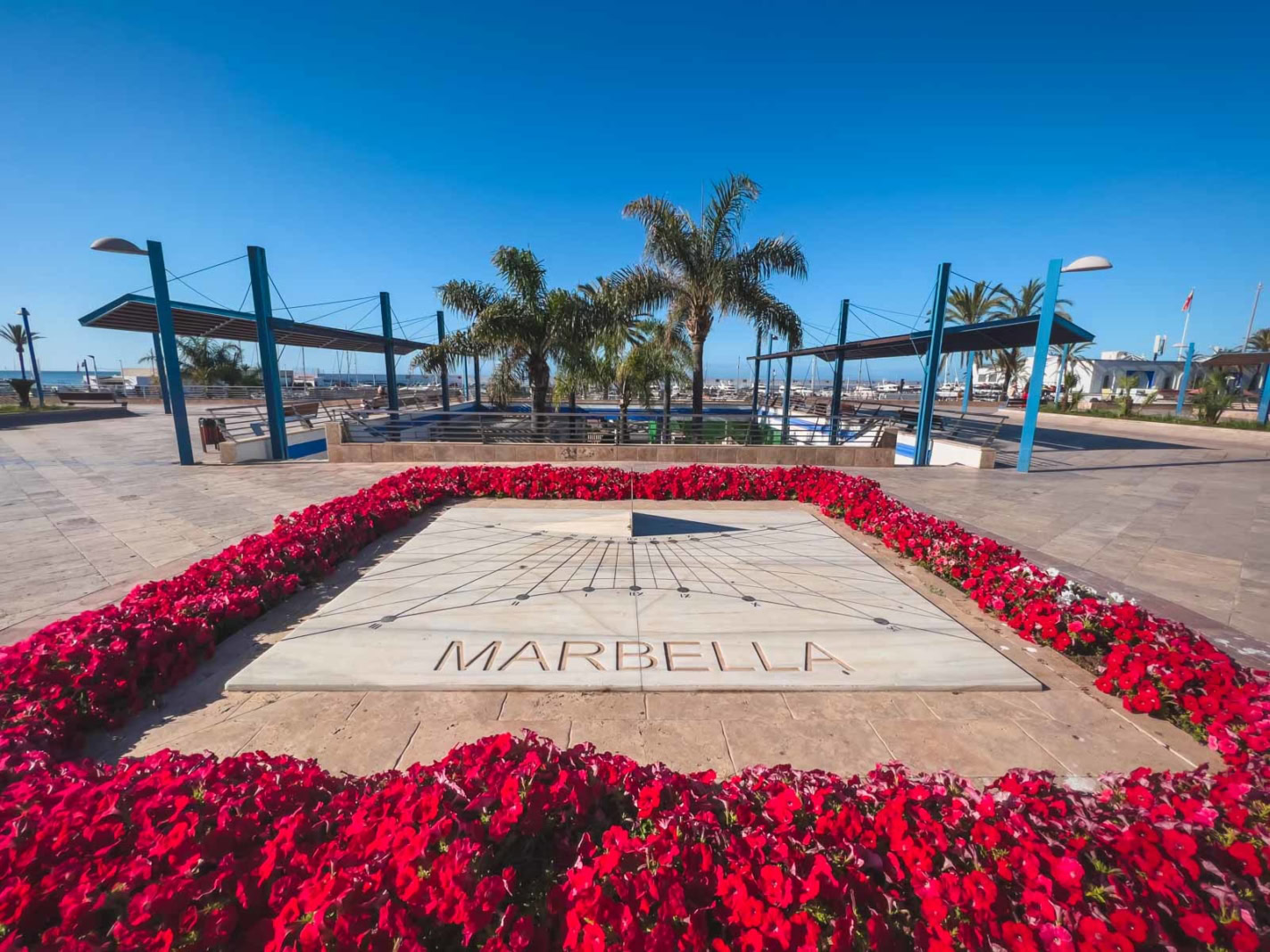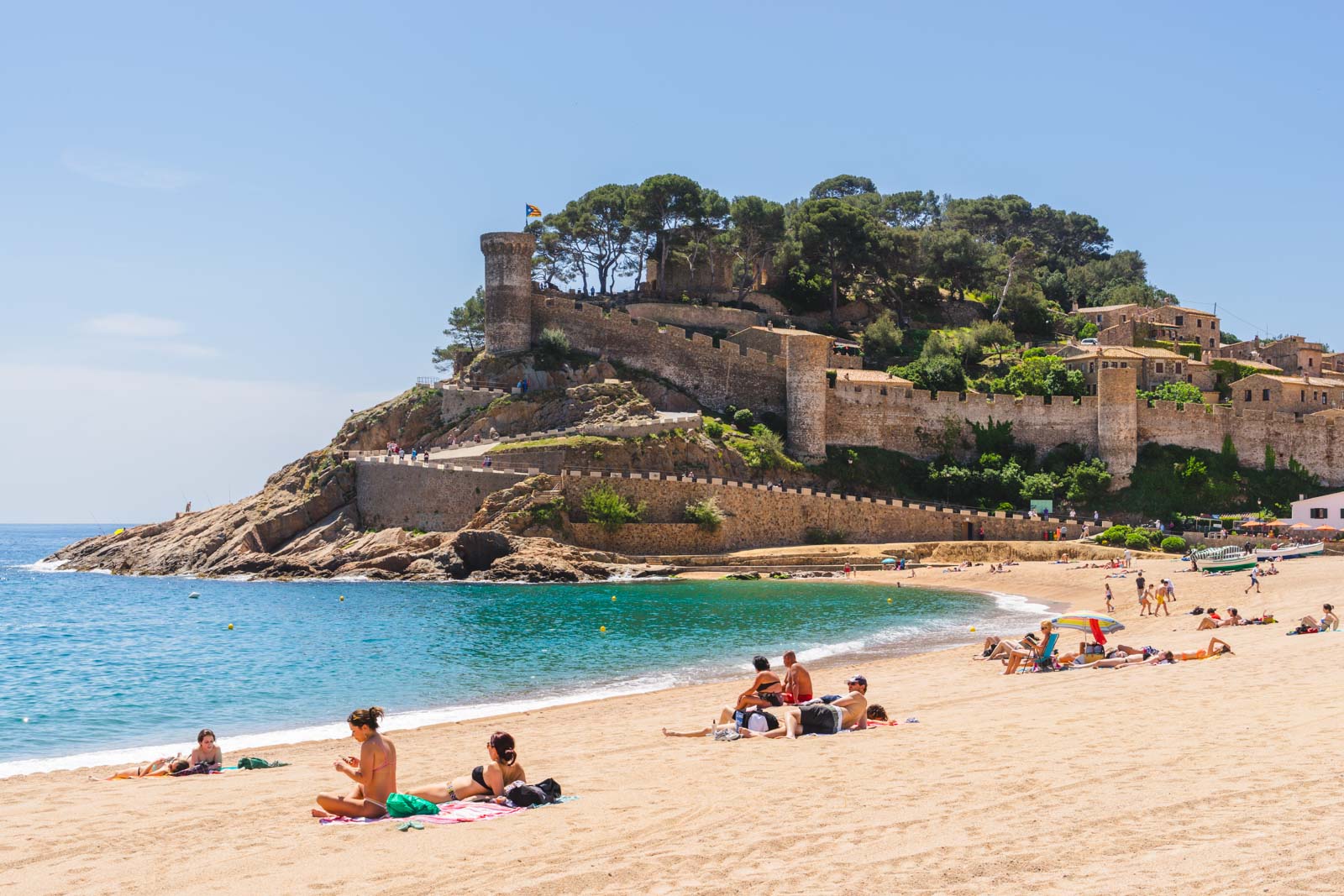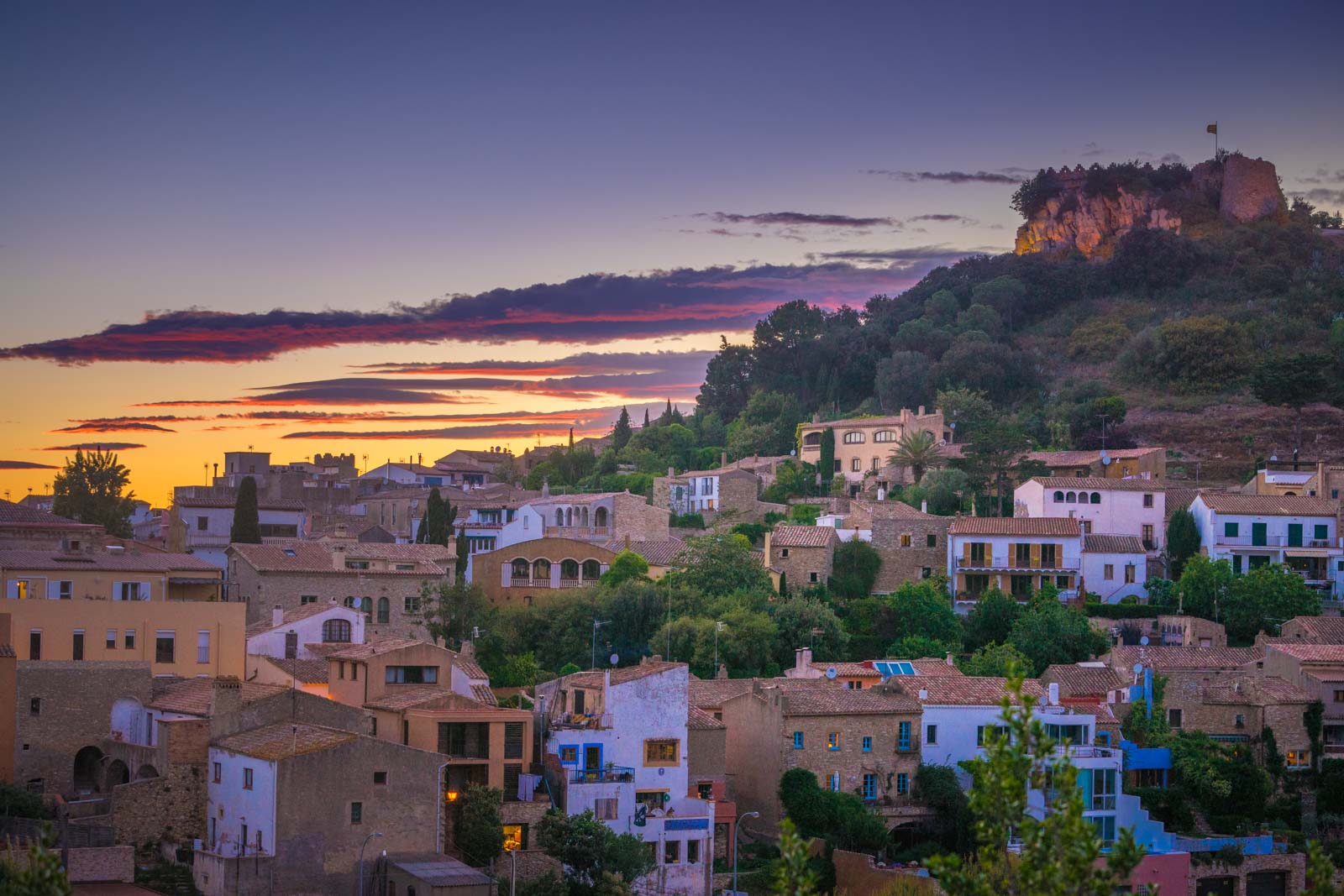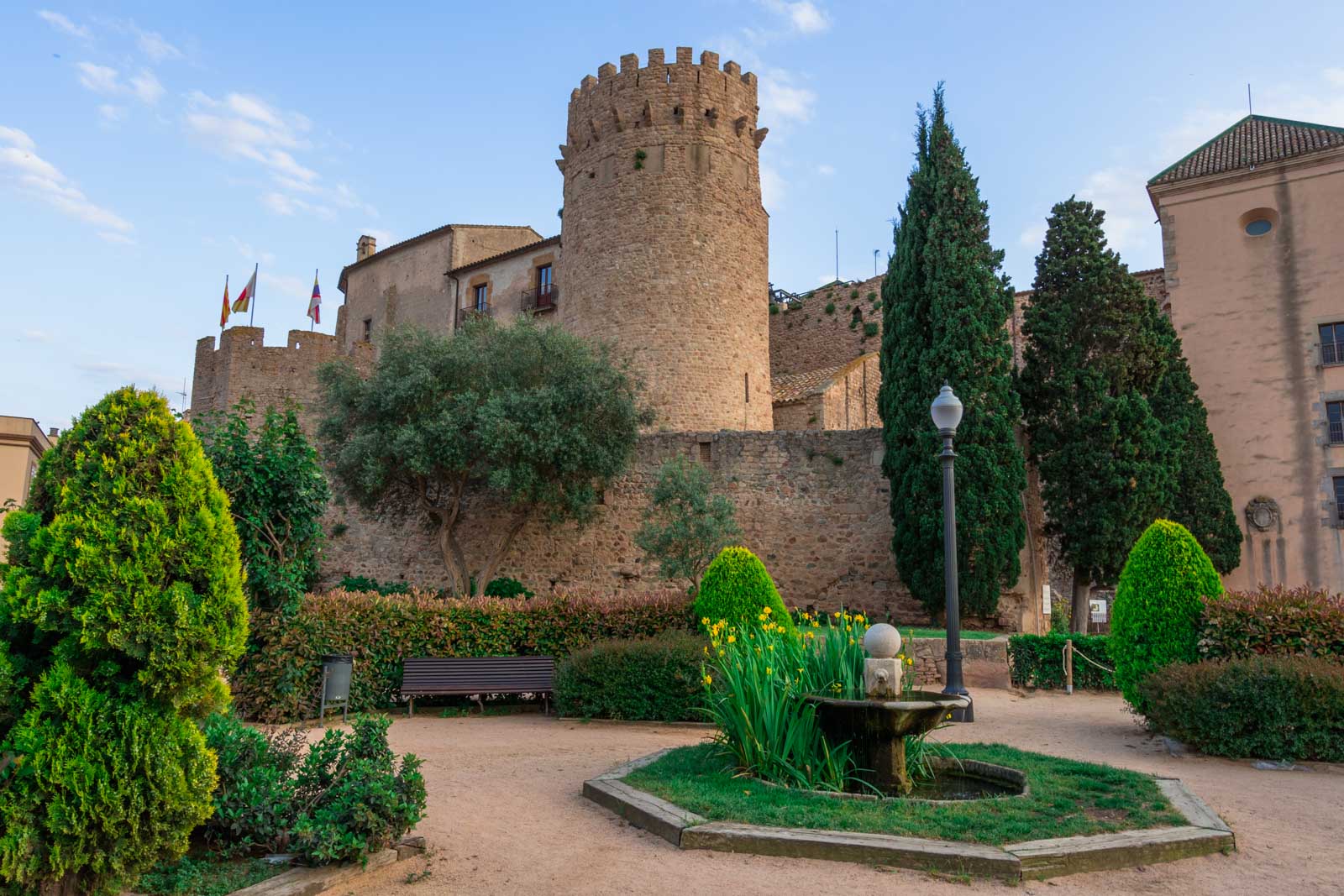Whether you have 10 days in Spain or want to go slow and steady full immersion, there are loads of places to visit. Diverse and dynamic, each city has its own pace of life, its own traditions, and fiestas.
We have been lucky enough to spend a lot of time in Spain and consider ourselves somewhat experts when it comes to traveling around the country. There are so many reasons to love Spain, but one of the things we love most is its diversity. Whether you want to explore the vibrant neighborhoods of Madrid, dive into the architecture of the cultural capital of Barcelona, or relax on the incredible beaches of Mallorca, this country has you covered.
In this article, we are going to cover the “popular” destinations but also some of our favorite cities that we would love to return to again and again.
1. Madrid
Madrid is one of Spain’s most interesting cities, where the past and present coexist. As the Spanish capital, Madrid gives you a glimpse into Spain’s cultural evolution and Spanish history, with the Royal Palace and Plaza Mayor keeping the city’s architecture and heritage intact. La Latina and other neighborhoods allow you to see the different styles that have shaped the city over the centuries, from baroque to contemporary, along the Gran Vía.
Art lovers will find Madrid’s cultural wealth in its museums, the Prado, Reina Sofía, and Thyssen-Bornemisza, where you can see works by Spanish artists like Velázquez, Goya, and Picasso. The city’s love of art goes beyond these museums, with theaters, galleries, and street performances everywhere for all tastes. This cultural diversity in art makes Madrid a unique destination for those who love both classic and modern.
Madrid’s food culture is a big part of its charm. Markets like Mercado de San Miguel are the perfect place to try the different regional cuisines of Spain, with stalls offering traditional tapas to modern versions of classic dishes. As the sun sets, the city comes alive, with cafes, bars, and clubs that keep the city going until the morning. Trust us, experiencing Madrid’s nightlife is to get closer to the Spanish way of life, so you will enjoy it and won’t want to leave.
2. Barcelona
Our first impression of Barcelona was magic. We fell in love with this city at first sight. Barcelona is the capital of the province of Catalunya and is located on the Mediterranean coast of Spain.
Everywhere we looked in this city was a feast for our eyes. Colors and architecture surrounded us and begged to be explored. As we wandered through the hilly, winding streets, we learned that Barcelona is home to FC Barcelona. Thousands of football fans visit the famous Camp Nou stadium to watch Barça play, but we opted for a different tour of the stadium. The best part of the tour was running around on the field and enjoying the stunning views of the city from the upper deck.
Barcelona is also known for its nightlife, with bars and clubs that play music until the wee hours of the morning. If you’re looking to party, this is the city for you! But, amidst all the nightlife, Gaudí’s architecture is waiting to be admired.
We visited La Sagrada Familia, the most famous landmark in Barcelona, and splurged on fast-track tickets so we could beat the heat and enjoy this amazing basilica before the sun got too high. We wandered through the detailed and beautiful interior, gazing up at the stunning windows and soaring ceilings. What an inspiration to see such beauty inside and out. If you’re short on time, we recommend purchasing a Hop on Hop off bus tour ticket. This is a great way to see the main sights in Barcelona at your own pace. We used our hop on hop off bus tickets to explore Park Güell, the Gothic Quarter, and Barceloneta Beach. Each of these attractions offered stunning views of the city.
We loved every moment of our time in Barcelona and enjoyed exploring the hilly streets and wandering around this beautiful city.
3. Seville
Seville is the 3rd largest city in Spain and the capital of Andalusia. It’s known as the birthplace of flamenco dancing, and we wanted to experience it ourselves. We headed to the Triana neighborhood, where flamenco dance and music are woven into everyday life.
We wandered the colorful streets and came across a small tablao where we stopped for lunch and a show. The older woman who sang had a powerful voice, and the younger woman’s footwork was incredible. We watched in awe as the dancers told stories with their arms and legs.
After lunch, we walked to the Alcázar Castle complex. It was built by the Moorish Almohad dynasty and is a masterpiece of mudéjar architecture. The complex is huge and includes the palace, gardens and a cathedral.
From there, we walked to Seville’s Gothic cathedral, the largest Gothic church in the world. The tower, El Girnal, was built by Moorish architects and offers stunning views of the city. The cathedral was built on the ruins of a Moorish mosque, and many of the stones were reused. It’s an impressive structure and a must-see when visiting Seville. Then it was on to the Plaza de España.
In the evening, make sure to hit up one of the many traditional tapas bars before heading out for dinner. You won’t regret visiting this city in southern Spain.
4. Bilbao
Located in the north of Spain in the beautiful Basque Country, Bilbao is a city where tradition meets modernity. Famous for its architecture, Bilbao has the Guggenheim Museum, one of the most impressive landmarks in the world, a modern masterpiece that is the city itself. The titanium and futuristic design is mesmerizing, attracting art lovers and architecture fans from all over the world.
But Bilbao’s architecture doesn’t stop at the Guggenheim. The Bilbao Cathedral is a must-see, with its Gothic towers and intricate detail. The old town is a joy to get lost in, with narrow streets giving way to lively squares and hidden treasures around every corner.
Bilbao is also cultural. The city has many museums, galleries, and landmarks, each one revealing a different side of the city’s past and present. Fine Arts Museum, Maritime Museum, and more are not to be missed.
And then, of course, there’s the food. Bilbao is famous for its Basque cuisine, and pintxos (those little snacks) are a must. Enjoy them with a glass of local wine for an extra bonus. Seafood lovers are in for a treat, with the city’s coastal location, which means the freshest seafood around.
5. Valencia
Located on the beautiful Mediterranean coast, Valencia is a charming city that is full of Spanish culture and artistry. With its international airport, Valencia is a perfect gateway to other European destinations as well as the rest of Spain.
Known as the City of Arts and Sciences, Valencia features modern architecture that is unlike anywhere else in Spain. The oceanarium and planetarium are just two of the futuristic buildings that are sure to fascinate kids. The interactive museum is a great way to spend the day, with something for everyone to enjoy. Valencia also offers family-friendly attractions, including a theme park, making it a great destination for families.
But, truthfully, Valencia is all about the beach. The city has several beaches that are perfect for soaking up the sun. While summer is the peak tourist season, the weather in autumn is still warm and perfect for the beach. Valencia is one of those cities where you can easily wander the beach or explore the cultural attractions. With its beautiful architecture and delicious cuisine, Valencia is a city that celebrates life.
6. Granada
Granada is a sleepy city that charms the soul. It’s the perfect destination for travelers who are looking to slow down and enjoy the simple things in life. The views of the Alhambra and the Sierra Nevada mountains are second to none.
Granada is a perfect destination for a day trip from the coast. Hiking on the gentle slopes of the Sierra Nevada mountains is definitely a must-do. We loved the views of the surrounding area, and the hikes were not too difficult either.
After a day of exploring the mountains, returning to the city for a siesta is necessary. Waking up in the afternoon and strolling through the narrow streets of the Albaicín neighborhood is the perfect way to spend the afternoon, then it is time for a cold beer and tapas to kick off the evening.
The Booga Club is where the parties are in Granada. Live music filters through the streets every night. Or, you could stumble upon a cave restaurant featuring live Flamenco. Because why not?
Visiting the Alhambra Complex is a must-do in Granada. The Generalife Gardens are pure magic. The Alcazaba, the last remaining fortress of the Islamic era, is impressive. Don’t miss it.
7. Salamanca
Salamanca is a gem tucked away in the heart of Spain. This charming city is a perfect blend of history, stunning architecture, and vibrant energy. Salamanca is home to one of Europe’s oldest universities, the University of Salamanca, which has been illuminating minds since 1218. The golden sandstone buildings, especially the stunning Plaza Mayor and the detailed university façades, are breathtaking. The entire city is a beautiful work of art, and wandering the streets is a must. Salamanca is a perfect example of Gothic, Renaissance, and Baroque styles all meshing together seamlessly.
But Salamanca is not all about history. The city has a great cultural vibe thanks to its young university population. There are plenty of cafes, bars, and festivals to keep anyone young at heart happy. The main Plaza Mayor is filled with tasty tapas, restaurants, and bars and is a hub of activity. We stumbled upon a traditional castanuelo (a Salamanca festival) while we were there, and it was amazing. The city is full of life and energy, and the people are very traditional. It’s a great blend of old and new.
The city is also very walkable. The New and Old Cathedrals, the Roman Bridge, and the picturesque Casa de las Conchas are all close to each other and to the main plaza. We didn’t need a car in Salamanca, and it’s definitely a city that is best explored on foot. With its perfect location, rich culture, and stunning views, Salamanca should be at the top of your list of places to visit in Spain.
8. Toledo
While big cities like Barcelona and Madrid get all the attention, little towns like Toledo are the real treasures of Spain. Perched on a hill, Toledo overlooks the flat plains of Castilla-La Mancha, rural Spain.
This walled city is full of history and culture, with Arab, Jewish, and Christian influences evident in its monuments and statues. Toledo is full of surprises and definitely deserves a visit.
Two of Toledo’s most famous gates are the beautiful Sol Gate and the Moorish Bisagra Gate. The Sol Gate is located in the old quarter and is close to the bustling Plaza de Zocodover. If you would rather escape the big city then explore it then Toledo is a great start.
9. Malaga
Málaga is one of Spain’s best cities because of its coastal charm, history, and modernity. Situated on the Costa del Sol, it has stunning Mediterranean views and some of the best beaches in the country. The mild year-round climate means you can enjoy outdoor activities, from sunbathing to water sports.
The city also has a rich history dating back to its Phoenician settlement days. Landmarks like the Alcazaba a well preserved Moorish fortress and the Roman Theatre show off its cultural diversity. Málaga is also the birthplace of Pablo Picasso, and you can visit his life and work at the Picasso Museum.
Modern Málaga adds to its historic charm with a food and art scene. Muelle Uno, the revamped port area, has trendy shops and restaurants, and the old town has traditional tapas, bars, and bustling markets. Plus, it’s a warm welcome and easy access to other Andalusian hotspots. Málaga has it all.
Additionally, the Spanish islands, such as the Canary Islands, offer scenic shorelines and adventure opportunities, making them another prime coastal destination.
10. Córdoba
Córdoba is one of Spain’s top cities for its incredible historical and architectural heritage. At the heart of the city is the Mezquita, a former mosque turned cathedral famous for its forest of arches and columns. Wander through the old town, and you’ll find narrow streets with whitewashed houses and flower-filled patios, a glimpse into the Moorish past.
This Spanish city is also famous for its cultural festivals. The Patio Festival in spring shows off the patios of Córdoba, which the locals decorate with flowers. Flamenco and local food add to the party atmosphere; it’s a great time to visit.
You can walk around Córdoba; it’s small enough to get to know its charm. The Roman Bridge and the Alcázar of the Christian Monarchs are within walking distance. It has history, culture, and atmosphere, a must-see in Southern Spain.
11. Girona
Tucked away in northern Spain, Girona is a charming city steeped in history and culture. Winding your way through its narrow streets is a must, as the medieval architecture is a testament to its rich past. Girona Cathedral dominates the skyline, while the old city walls and Arab wards whisper secrets from years gone by.
The Jewish Quarter is one of Europe’s best preserved and is definitely worth a stroll. The history in this city is palpable and adds to Girona’s charm.
The town of Girona is not only pretty, but it’s also cultural. The city comes alive during festivals, and its food scene is not to be missed. The flower festival, Temps de Flors, is a highlight, and it is beautiful to stroll through the streets and admire the decorations. And then there is the food. Girona is home to one of the world’s best restaurants, El Celler de Can Roca. This three-Michelin-starred gem is a must for food lovers. The sister’s wine cellar is incredible, and the chef’s talent is evident in every delicious dish. If you’re looking for a more laid-back meal, try 2 Michelin-starred La Trencada, a beautiful modern restaurant with a focus on local produce, or Els Moats, a cozy restaurant famous for its pancakes. Girona is a gem and definitely worth a visit.
Girona is a great base from which to explore the local area. The stunning Costa Brava is just a short drive away, and its beautiful beaches and coastal towns are perfect for relaxing in the sun. The transportation network is also really good, making it easy to make day trips to nearby towns and sites like Barcelona and Figueres.
12. Cuenca
Perched in the war-torn region of Castile, Cuenca is a city of dramatic beauty and rich history. Perhaps its most famous landmark, the Casas Colgadas, or Hanging Houses, appear to be hanging off the side of the cliff as they stretch out over the Huécar River gorge. The rustic, wooden balconies creak in the wind, and it’s easy to imagine the ladies of the house, shawls wrapped tightly around their heads, peering out at the breathtaking view below.
The houses are medieval and impressive, and it’s not hard to imagine the lives of the people who lived in them. Women washing dishes in the narrow windows, children playing in the steep, creaky staircases, and couples dancing in the small, stone rooms.
But it’s not the buildings that make Cuenca special; it’s the dramatic location. The city is situated between the winding Júcar and Huécar rivers, and the scenery is dramatic and beautiful. For a panoramic view of the city, cross the San Pablo Bridge, an iron lattice bridge that was built in 1969 to replace the original, a rickety suspension bridge.
13. Alicante
During that same road trip through central Spain where we saw the Colgadas, we stopped at the beach city of Alicante.
Filled with walking streets and markets, delicious restaurants and nightlife, it was an amazing Spanish vacation. Castillo de Santa Bárbara is the most prominent site to see when visiting this energetic city.
14. Pamplona
Home to the San Fermin Festival, Pamplona is famous for running the bulls, but there are plenty of things to do besides taking part in the controversial festival.
There are magnificent city walls dating back to Roman times, as well as the lovely walking streets and food scenes; it’s an incredible city park, and the Plaza del Castillo makes it a worthwhile stop on your route into Basque country.
It is also a major stop on the Camino de Santiago. That pilgrimage is high on our list of must-do things! Did you know that Santiago de Compostela is the final stop on the Camino?
15. San Sebastian
Located just a short drive from Pamplona is the lovely coastal city of San Sebastian. After the San Fermin Festival, we took a break at San Sebastián to eat a lot of Pinchos.
Located on the sea, this city in the Basque Country is known for its food. It also has an incredible beach.
16. Marbella
Located on Spain’s sun-drenched coast, Marbella is a treasure of a destination that seamlessly blends history and modern luxury. Wandering through the white-washed houses and cobblestone streets of the charming Old Town is like stepping back in time. The narrow alleys and traditional Andalusian architecture are quintessential Marbella, and quaint shops and inviting cafes are waiting to be discovered around every corner.
But Marbella is not a town stuck in the past; it’s a vibrant coastal destination. The Golden Mile, which connects Marbella to Puerto Banús, is home to luxury resorts, world-class restaurants, and exclusive beach clubs. This lively area is perfect for those seeking a mix of relaxation and excitement, with sparkling beaches and lively nightlife.
The beaches along the Golden Mile are some of the prettiest in the area, with bright blue waters and golden sand. And when the sun goes down, the party really gets started, with bars and clubs staying open until the early hours of the morning.
17. Tossa De Mar
Tossa De Mar is a beautiful city in Costa Brava with a medieval fort overlooking the sea and city. There is a medieval village that is beautiful, and you can walk through the cobblestone streets. There is also a fantastic beach.
Costa Brava is one of the most beautiful regions in Spain, and a great way to see it is on the water. If you want to taste Costa Brava but don’t have time to visit Girona, book a kayak and snorkeling tour.
Getting Around Spain
Travel in Spain is very easy. All the major cities and towns are connected by rail, and even many of the smaller villages are too. You can travel cheaply and easily throughout Spain by train alone.
What’s more, it is possible to book your train tickets online before you even leave home.
Car rentals in Spain
Travelers who wish to explore as much of Spain as they possibly can may want to hire a car for the duration of their stay. We have a whole video dedicated to How To Rent a Car in Spain.
If you are over the age of 21 and have a driver’s license, then hiring a car is hassle-free and can work out cheaper than train travel in the long run.
If you choose to hire a car, it can easily be arranged for the hiring company to bring your car to the airport to meet you so you can hit the ground running…or, rather, drive!
Remember to check whether your car needs diesel or petrol, or else you’ll have a nightmare on your hands!
Click here to search all the car rental agencies and get the best price for your vacation in Spain.
Get the Best Price on Car Rentals in Spain – Click Here to Search all the Car Rental Agencies and get the best price for your Spain Vacation.
Bus Travel in Spain
Bus travel is also a great option in Spain. For example, a bus from Madrid to Granada takes just four short hours and runs two or three times daily, more frequently in the high season.
Buses are cheap and cheerful, and they are a nice way to see the Spanish countryside sprawling away from outside your window. Rest assured, buses in Spain do take breaks for food and toilet stops. No need to strategically dehydrate for your long journey here!
Spain is a vivid and welcoming place filled with passionate and caring people who are only too happy to accommodate tourists and travelers.
Learning a little of the language can take you a long time, and even if you make mistakes, Spanish people always appreciate the effort.



